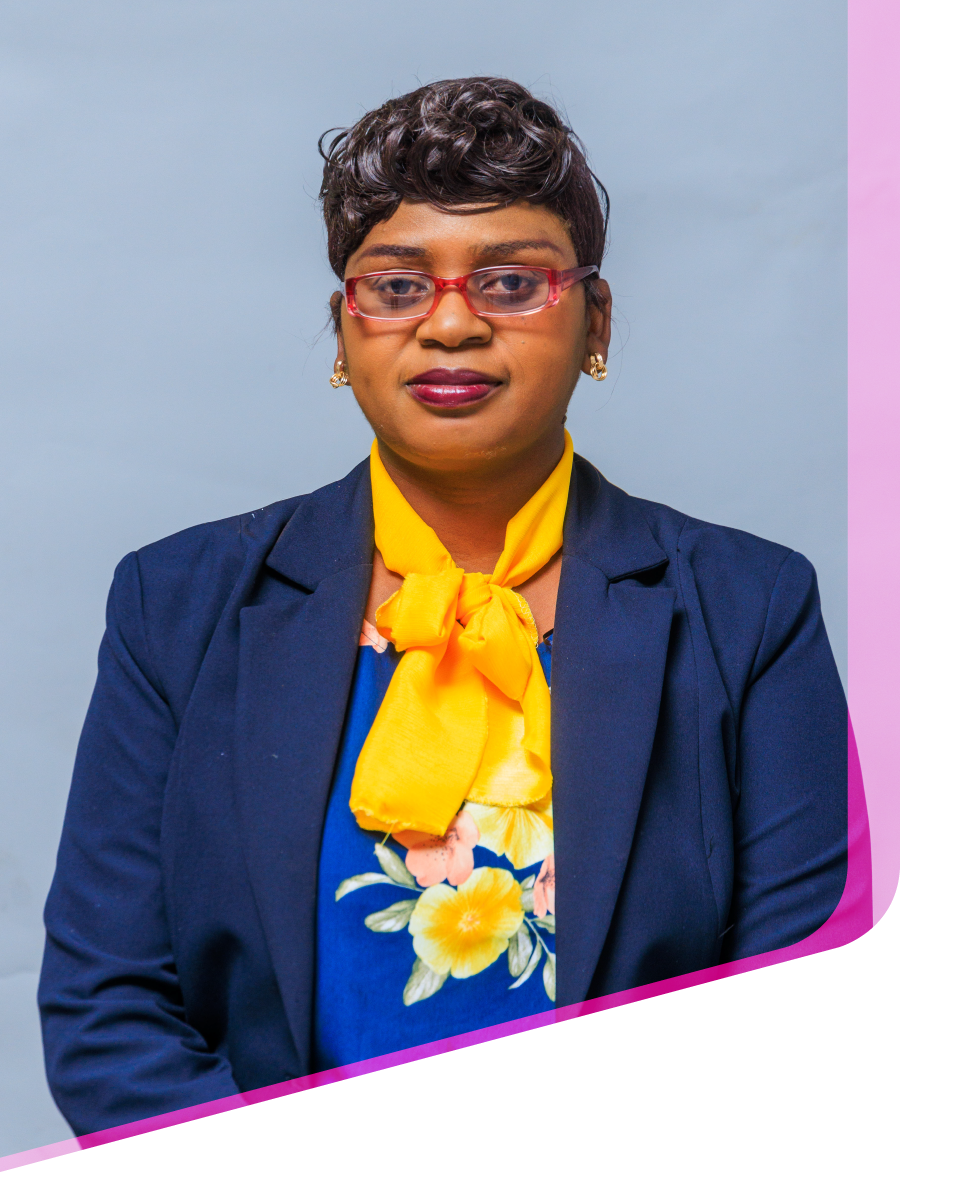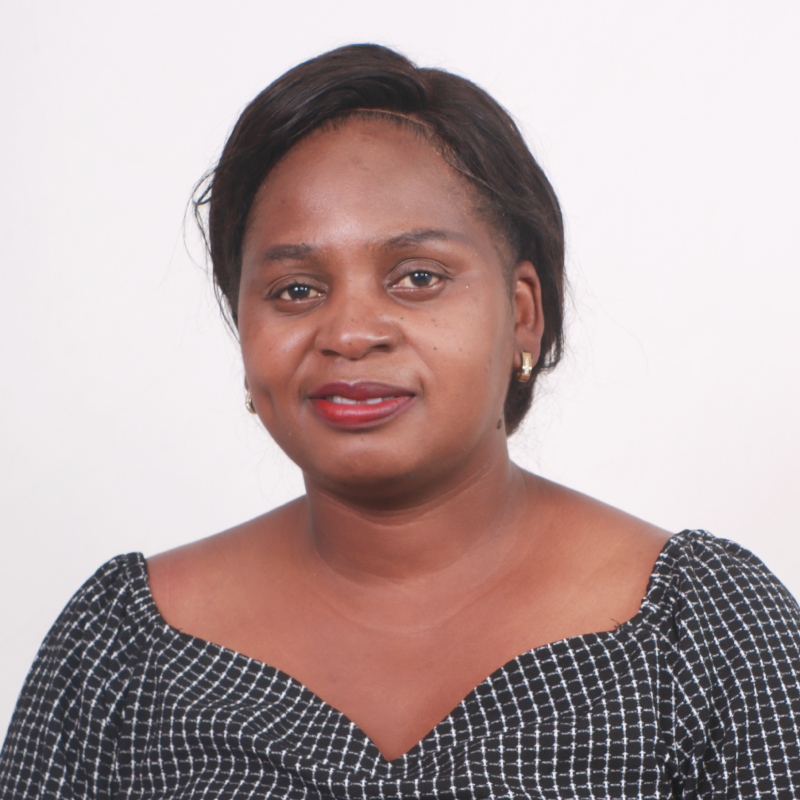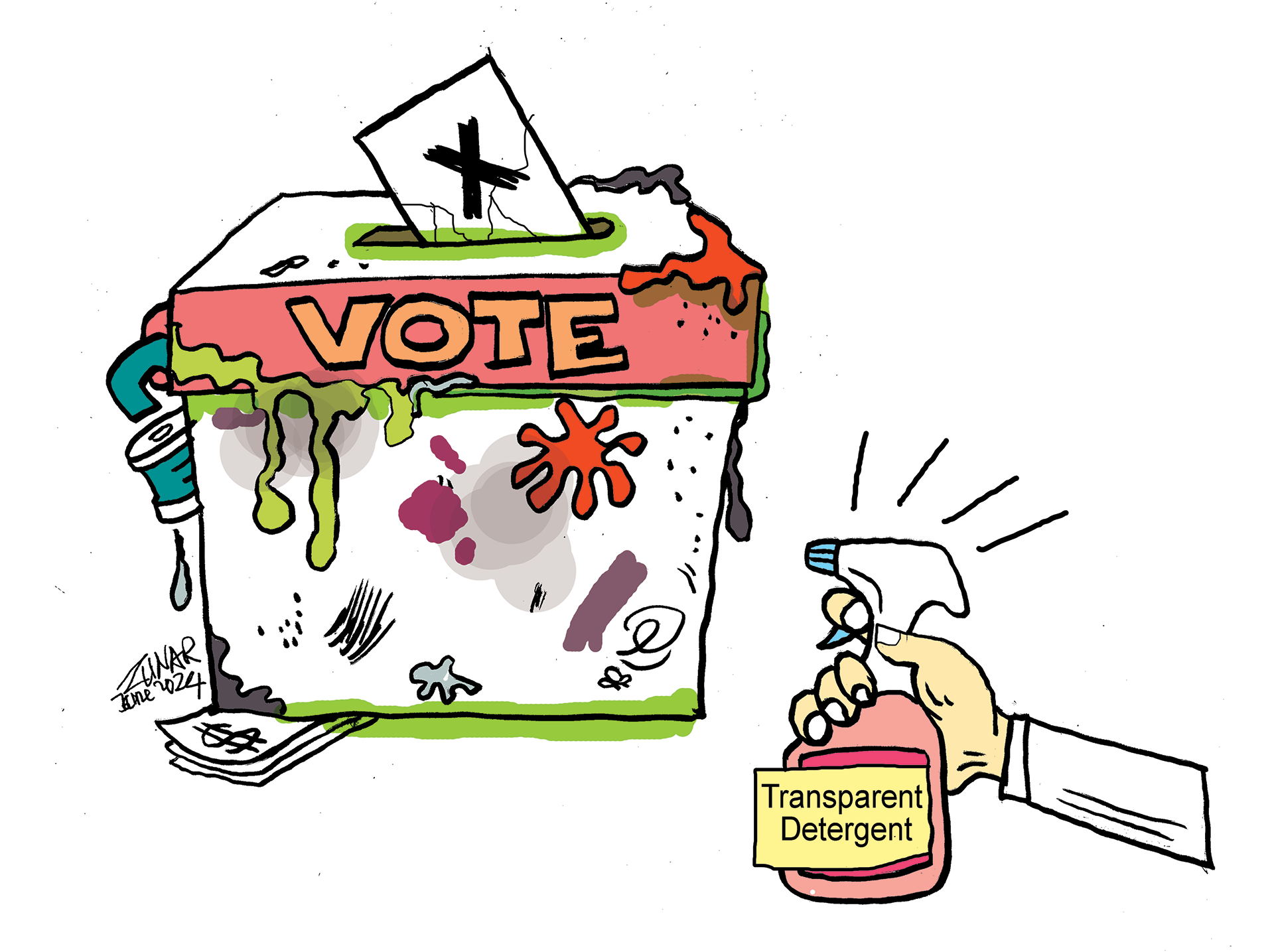
Zimbabwe
Zimbabwe
Zimbabwe
Ellen Shiriyedenga
Ellen Shiriyedenga
Ellen Shiriyedenga
Opposition legislator and political and elections activist
Opposition legislator and political and elections activist
Opposition legislator and political and elections activist

Zimbabwe
Ellen Shiriyedenga
Opposition legislator and political and elections activist
“Zimbabwe’s problems are political and hence require a political solution.”

VITA
Ellen is an opposition legislator and political and elections activist. She has been an activist for over 20 years since Zimbabwe’s democratic struggle began in 1999 with the formation of the main opposition party Movement for Democratic Change (MDC), which was then rebranded as Citizens Coalition for Change (CCC) in 2022. Ellen is an elections expert having presided over three election cycles as Director and Deputy Director of Elections in the opposition movement. She is a Marketer and Development Practitioner and is pursuing a Master's program in Election Policy and Administration.
Could you tell us the motives for your activism in the defense of democracy and human rights?
Zimbabwe’s problems are political and hence require a political solution. Elections are the most democratic way for political change. Unfortunately, this has not been the case in Zimbabwe. For more than four decades, Zimbabwe’s democratic reform has been gagged by flawed elections, which have been used as a tool for sanctifying the continued dictatorships. Elections have been rigged through covert and overt means hence the outcome is never close to the will of the people. Seeing this cycle of flawed elections continue at every election cycle, as a student activist, I decided to channel my exploits towards addressing the deficiencies bedeviling our electoral processes by joining the Movement for Democratic Change (MDC) in 1999. I joined MDC as I perceived it to be the only credible vehicle to fight the ZANU PF repression and dictatorship. I eventually narrowed my activism towards election administration and policy with the movement to ensure that appropriate laws and systems are in place that will guarantee a democratically elected government.
Tell us please about your involvement in specific work, e.g. rallies, the opposition party, initiatives to observe elections or the conduct of the government, reporting, etc.
As the Deputy Elections Director for the CCC, I made very significant strides toward effective election administration and policy both internally and externally. Internally, I was key in ensuring that proper election systems and machinery was in place for all by-elections and general elections. These included setting up the elections administration infrastructure throughout all the ten provinces in the country, crafting the candidate selection rules, general election strategy formulation and implementation, and more specifically protecting the vote through anti-rigging mechanisms. Externally, my role was to ensure that the government and the electoral management body were put to account on election issues. Accountability was enforced through agile monitoring and tracking of voter registration processes, auditing of voters’ roll, scrutinizing delimitation of constituency boundaries, advocating for electoral legal reform and whistleblowing any electoral anomalies. I was also the technical lead in drafting key advocacy documentation such as reform blueprints that included the electoral reform blueprints, in providing critical analysis of the electoral environment and electoral processes. These documents were critical in exposing the fraud in our country’s election administration system. All this was done to defend the people’s right to vote and the dignity of elections in a setup meant to remove people’s confidence in elections.

Could you explain some of the challenges and problems you face via state and non-state repression?
In Zimbabwe, the life of any opposition political activist is at risk from state and non-state repression. The August 2023 pre-election and post-election periods, were characterized by attacks, forced disappearances, abductions, and murder of some political activists. Resultantly, as a key person in the elections department, I was equally at risk and an even greater one as a woman. I have been harassed and intimidated during press conferences, my communications team was manhandled, and our election material was besieged. I have been trailed by unmarked state vehicles and some have been parked outside my home for days to the discomfort and intimidation of me and my family. I have been forced to desert my home in fear of the regime and to take extra precautionary measures to strengthen my security, especially in the period just after elections before the announcement of results.
What does the future look like for Zimbabwe? How do you see your role in?
The political and human rights situation in Zimbabwe is regressing and the future looks bleak in light of the current regime, which does not hesitate to carry out human rights atrocities like abductions, murder, and physical attacks. There is a deliberate ploy to decimate opposition political activism and also civil society organizations through the introduction of draconian laws like the Private Voluntary Organization Bill and the Patriotic Act of Zimbabwe. This, therefore, calls for increased collaborations, the creation of new platforms and the adoption of new advocacy strategies, in which I am prepared to play an active role. Additionally, I intend to use my role as a legislator to bring the government to account and to ensure that appropriate policies and political reforms are in place to guarantee democracy, respect for human rights, and the rule of law in Zimbabwe.
Zimbabwe
